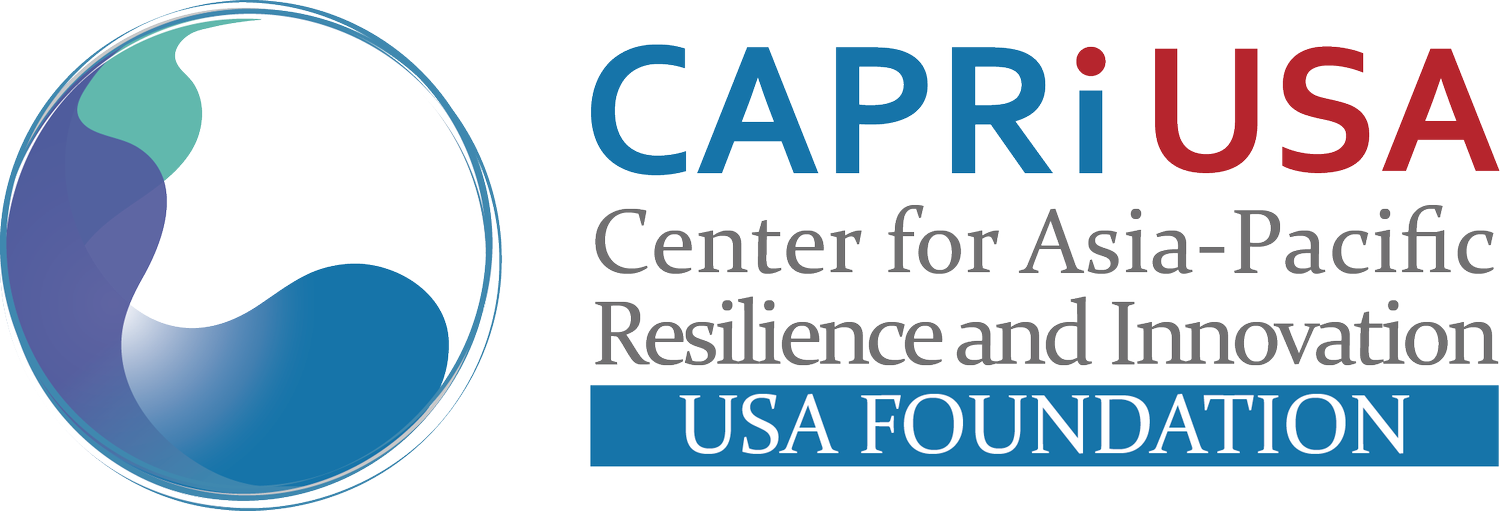ASU and TSMC Leaders Highlight Partnership at CAPRI and CAPRI USA’s Inaugural Leadership Forum
Taipei, October 3, 2025 — “There is no separation between industry and universities,” said Michael M. Crow, President of Arizona State University (ASU), speaking today in the inaugural Leadership Forum hosted by the Center for Asia-Pacific Resilience and Innovation (CAPRI) and CAPRI USA. Joined by Lynette Ng, Deputy Corporate Head of HR at TSMC, and Syaru Shirley Lin, Chair of CAPRI and President of CAPRI USA, he pointed to ASU and TSMC’s partnership as an example of collaboration to strengthen resilience worldwide and address the challenges of the future.
Presidents of Taiwan’s leading universities, representatives from major Taiwanese and international business associations, policymakers from across the political spectrum, senior diplomats, and think tank leaders joined the forum for an afternoon of dialogue on the theme “The Invisible Hand Advancing Research and Innovation: How Universities and Industry Build Resilient Ecosystems.”
“Dr. Crow’s mission at ASU mirrors that of CAPRI’s core value of inclusivity. As an independent and international think tank, CAPRI aims to build an equitable and more resilient society,” said Lin. “TSMC is striving for sustainability and talent cultivation for future generations, which closely aligns with our mission.”
The Leadership Forum is part of CAPRI’s mission to enhance global resilience and promote innovative policy through cross-sector partnerships that cultivate the next generation of leaders.
At the beginning of the discussion, Prof. Meredith Woo, a Senior Fellow at CAPRI and Woo is Special Advisor on International Strategy to Dr. Crow, shared observations from her and Dr. Crow’s recent visit to Seoul. “We’re living in an interesting time, preparing for a labor market we don’t really understand. Society is incredibly excited about AI, but are also worried about competition and the future.”
Connecting knowledge and talent with a mission
Both Ng and Crow discussed the success of the TSMC-ASU partnership in creating a pipeline of engineering talent connecting Taiwan with the world.
“TSMC has launched cooperation with three different countries,” said Ng. “In this way, TSMC is adding oxygen to talent incubation globally.”
Crow emphasized the pivotal role of universities as engines of innovation that will solve the challenges of tomorrow, highlighting how ASU has redesigned the university structure to focus research and learning on the grand challenges that students and faculty are striving to solve.
“The chip maker does not see themselves as the cancer treater, but they are, and they are fundamental to solving these grand issues,” said Crow. Ng also emphasized that TSMC’s success depends not only on leadership in cutting-edge technology but also on the company’s ability to show its teams the future that they are part of.
Ensuring sustainability, inclusion, and value-oriented innovation for the future
Participants raised questions on the future of higher education, the semiconductor ecosystem, and sustainability and inclusion in the technology sector.
Crow reflected on the importance of reimagining traditional models of higher education to meet rapidly changing societal challenges. He stressed that technology-enabled teaching and global partnerships with industry leaders such as TSMC are vital to preparing students to play an active role in shaping the future.
“Students should have aspirations for the future and look at futures that they can imagine. ASU is working not on predicting, but on visualizing and conceptualizing the future. AI and new technology are a way to do this,” said Crow. He also noted that all knowledge production is grounded in values, and universities are responsible for upholding social values.
As TSMC’s talent strategist, Ng described her efforts to build a sustainable pipeline of female talent, including how to inspire women and girls to enter technology fields, enable them to be their authentic selves in the male-dominated semiconductor industry, and pass their knowledge on to the next generation.
Investing in talent and innovation amid the 50-50 proposal
The discussion then turned to the feasibility of the US’s proposed “50-50” deal for chipmaking with Taiwan, and what it would take to create a semiconductor manufacturing ecosystem in the US. Ng highlighted that TSMC’s development in Arizona requires adapting to the local environment and utilizing local labor and talent, thus necessitating a new way to achieve success.
“There is no way things were going to be done the Taiwan way, and that’s ok, but [TSMC] can inspire the Arizona team to produce through a combination of the Taiwan and Arizona spirit,” said Ng.
Crow commented that a “50-50” deal is not so much about onshoring TSMC’s capabilities but demonstrating the American commitment to innovation and technological advancement.
“50-50 is not what's at play; it's about developing American capabilities and American know-how,” said Crow. He pointed to ASU’s long-standing collaboration with TSMC in Arizona as an example of how universities can power local ecosystems while contributing to global scientific progress.
Crow and Ng underscored that the success of public-private partnerships, like ASU and TSMC, requires flexibility and a commitment to designing a future where innovation is a driver of positive change.
Realizing CAPRI’s vision for innovation and resilience
Syaru Shirley Lin, Chair of CAPRI, stressed the role of think tanks like CAPRI and CAPRI USA in providing a platform bridging academia, industry, and policymakers to tackle the complex challenges facing societies worldwide. “CAPRI is embarking on a multi-year project that will gather stakeholders across sectors working to enhance climate resilience, equitable growth, and national security interests in Asia-Pacific societies.”
As part of this commitment, CAPRI partners with leading universities and talent initiatives to host interns and young graduate fellows. Looking ahead, CAPRI plans to expand its work in building resilient ecosystems that integrate academia, industry, civil society, and policymakers.
